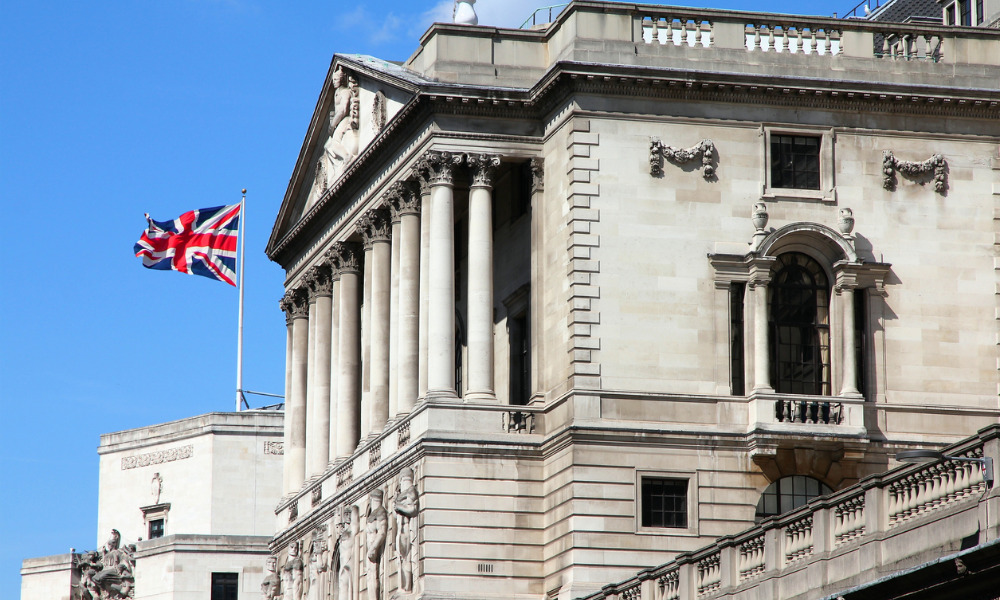Mortgage expert gives borrowers advice amid looming increase in mortgage costs

The Bank of England (BoE) has today raised interest rates by 0.75% – the largest rate hike since 1989, increasing the current bank base rate to 3%.
The decision to hike rates to its highest level in 14 years is unsurprising to many financial experts with UK inflation once again hitting a 40-year high of 10.1% in September. The Monetary Policy Committee (MPC) has been trying to combat rising inflation since December last year, when it made the first of eight consecutive rate increases.
The BoE is increasing the cost of borrowing to bring the inflation rate down to 2%, though the central bank earlier predicted that inflation could reach double figures before the end of the year.
“There is no doubt that Inflation needs to be tamed,” Paul McGerrigan, chief executive at Loan.co.uk, said. “But how much of it is driven by frivolous overspending and an overuse of credit, and how much of it is driven by paying for the basics of water, heat, and food?
“One of the challenges when making macro-economic moves is time lag and they don’t get any bigger than bank rate moves. If the Bank of England goes too far, too quickly, they may overshoot the runway, creating a different set of avoidable challenges for the population and the country. If they don’t go quick enough, the markets may not settle down.
“As we know rates have stayed at historic lows for too long. No one would argue they need to be increased. The million-dollar question: is this the right pace?”
Read more: Market outlook uncertain, warns chief economist.
McGerrigan added that tracker mortgages will be impacted immediately, and lenders will move their Standard Variable Rates (SVR) up quickly.
“Those borrowers exiting fixed-rate products face significant increases to their monthly budgets having enjoyed some of the lowest rates in history,” he pointed out. “As we enter winter, is now the right time for such a significant rise?”
Kellie Steed, mortgage expert at price comparison platform money.co.uk, agreed with McGerrigan that while the rise in interest rates has been designed to tame inflation, it is likely that it will impact mortgage costs once again.
“For those on a fixed-rate mortgage, changes in interest rates will not apply until the end of your fixed-rate period,” Steed said. “However, those on a variable-rate mortgage, such as a tracker or discount rate deal, the impact is likely to be much faster, resulting in an increase in the cost of your mortgage repayments.
“Tracker mortgages are aligned with the Bank of England’s movements, while discounted mortgages are determined by your lender and based on their standard variable rate. The SVR is not explicitly linked to the Bank of England’s base rate but is likely to be influenced by it.
“When a fixed mortgage deal ends, you’re usually reverted to the lender’s SVR. However, SVR rates are often higher than the previous fixed rates, so your monthly mortgage repayments increase.”
Steed has some advice for borrowers who want to keep their mortgage repayments down.
“Those whose fixed-rate mortgage is coming to an end soon may want to consider changing their deal early to take advantage of interest rates before they increase,” she said. “However, remortgaging before your current deal ends could mean you’ll need to pay an early repayment charge (ERC). You should compare the cost of the ERCs to how much you think you could save by remortgaging, to ensure that switching early is worthwhile.
“It’s also worth taking advantage of the crucial six to seven-month period before your existing deal ends, as some lenders will allow you to lock-in a remortgage rate six months ahead of time, so that you avoid ending up on your lender’s SVR. This also gives you the chance to take advantage of competitive deals now that may not be available in six months’ time, especially if the Bank of England’s base rate continues to rise.”



